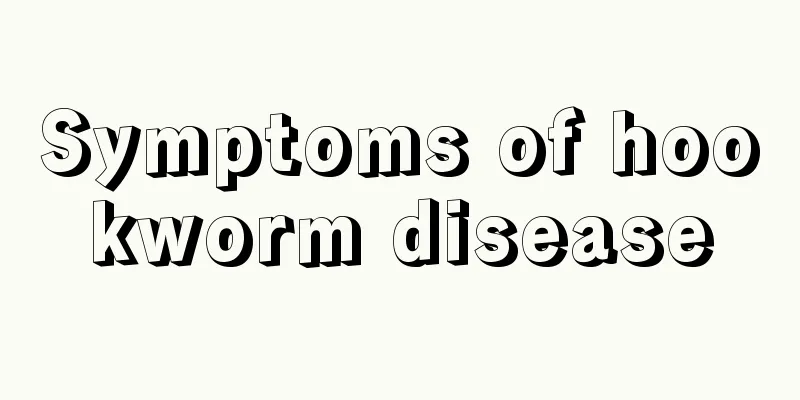How long can a patient with malignant nasopharyngeal cancer live without treatment?

|
The survival period of untreated nasopharyngeal carcinoma is usually short, and the specific time varies from person to person, but generally does not exceed 1-2 years. Nasopharyngeal carcinoma is a highly malignant tumor. If not treated in time, the cancer cells will spread rapidly, affecting surrounding tissues and organs, and causing life-threatening danger. Early diagnosis and standardized treatment are the key to improving survival rates. 1. Malignancy and survival of nasopharyngeal carcinoma Nasopharyngeal carcinoma is highly malignant, especially undifferentiated nasopharyngeal carcinoma, which grows fast and is prone to distant metastasis. If left untreated, the tumor will gradually invade the skull base, cervical lymph nodes, and even metastasize to the lungs, liver, bones and other parts, leading to multiple organ failure. The patient's survival period is usually short and the quality of life will drop sharply. 2. Treatment of nasopharyngeal carcinoma The treatment of nasopharyngeal carcinoma is mainly radiotherapy, combined with chemotherapy and targeted therapy. The specific plan is as follows: Radiotherapy: NPC is sensitive to radiotherapy, and early-stage patients can achieve good therapeutic effects through radiotherapy alone. Commonly used techniques include intensity-modulated radiotherapy (IMRT) and three-dimensional conformal radiotherapy (3D-CRT). Chemotherapy: For patients in the middle and advanced stages, chemotherapy combined with radiotherapy can improve the efficacy. Commonly used drugs include cisplatin, paclitaxel and 5-fluorouracil. Targeted therapy: For patients with specific gene mutations such as EGFR, targeted drugs such as cetuximab can be used to inhibit tumor growth. 3. Consequences and risks of not treating Untreated nasopharyngeal cancer patients face serious health risks. The tumor can compress surrounding nerves and tissues, causing symptoms such as headaches, decreased vision, and hearing loss. As the disease worsens, patients may experience difficulty swallowing and breathing, or even be life-threatening due to distant metastasis. 4. The key to improving survival rate Early detection and standardized treatment are the key to improving the survival rate of nasopharyngeal carcinoma. It is recommended that high-risk groups such as those with a family history or a history of Epstein-Barr virus infection undergo regular nasopharyngeal endoscopy. Once diagnosed, they should actively cooperate with doctors to develop personalized treatment plans to avoid delaying the disease. The survival period of malignant nasopharyngeal carcinoma without treatment is usually short, but through early diagnosis and standardized treatment, the survival rate of patients can be significantly improved. It is recommended that patients seek medical treatment in time, receive scientific treatment, and maintain good living habits and mentality to enhance physical resistance and prolong survival. |
<<: Is prostate cancer dangerous? How long can one live?
>>: Is T2C prostate cancer early stage?
Recommend
How long can all-ceramic teeth last
The preservation time of all-ceramic teeth is rel...
Is neurodermatitis contagious, yes or no
Many people are confused about whether neuroderma...
What are the symptoms of nasopharyngeal carcinoma metastasizing to the lungs?
What are the symptoms of nasopharyngeal carcinoma...
How to install a zipper pull? Introducing detailed steps!
In daily life, we often encounter situations wher...
What to do if private parts itch
Many women may encounter the problem of private i...
Boil mulberry water to wash hair
Mulberry leaves are the leaves of a common plant....
Can patients with nasopharyngeal cancer eat light soy sauce?
Can people with nasopharyngeal cancer eat light s...
Which virus may cause prostate cancer?
A study published by US researchers shows that a ...
Is it normal to have a varicocele of 19?
The inner diameter of the varicocele is 19, which...
How to maintain pulmonary fibrosis, pay attention to care to be healthier
Pulmonary fibrosis must be properly cared for in ...
Can overnight bitter melon be eaten
The momordica glycosides and bitter substances co...
There is a science to using a humidifier
Winter is here, and there is nothing more blissfu...
How to remove eye bands
Eye bags refer to swelling under the eyes due to ...
Can acupuncture be used to treat breast cancer?
Acupuncture is a form of treatment in traditional...
What does a mole on the face mean? Is it "a mole a thousand miles away"?
Beautiful women all hope to have a beauty mole on...









